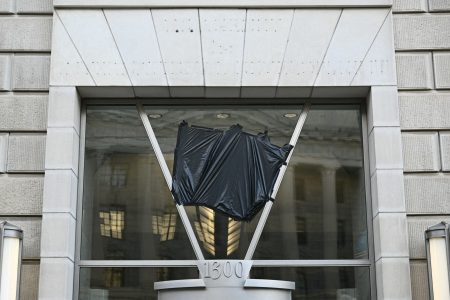The Laken Riley Act, a bipartisan bill aimed at addressing illegal immigration and crime, is gaining momentum in the Senate, with a sufficient number of Democrats signaling their intention to vote for its advancement. This would allow the bill to overcome a potential filibuster and proceed to a full debate and subsequent vote on final passage. Named after a nursing student tragically killed by an illegal immigrant with a prior criminal record, the act mandates the detention of illegal immigrants convicted of theft-related offenses until their deportation. The bill’s progress reflects a renewed focus on immigration as a key political issue, particularly in the wake of recent border surges and the upcoming election cycle.
The act’s central provision compels federal authorities to detain illegal immigrants found guilty of theft, burglary, or shoplifting, ensuring their removal from the United States. This measure addresses concerns about repeat offenders within the illegal immigrant population and seeks to prevent further crimes. Additionally, the Laken Riley Act empowers states to take legal action against the Department of Homeland Security for damages resulting from illegal immigration, providing a mechanism for states to hold the federal government accountable for perceived failures in immigration enforcement.
The bipartisan support for the Laken Riley Act underscores the growing political salience of immigration policy. Several Senate Democrats, including those facing re-election in 2026, have announced their intention to vote for the bill’s advancement. This suggests that immigration is likely to remain a prominent issue in upcoming elections, with both parties seeking to position themselves as tough on illegal immigration and crime. The fact that the bill passed the House with a significant number of Democratic votes further highlights its bipartisan appeal.
The Laken Riley Act is viewed by its supporters as a necessary step to address the perceived failures of current immigration enforcement policies. The tragic case of Laken Riley, whose killer had prior arrests but was never detained by Immigration and Customs Enforcement (ICE), serves as a stark example of the potential consequences of inadequate enforcement. The bill aims to close loopholes that allow individuals with criminal records to remain in the country illegally, potentially posing a threat to public safety.
The bill’s focus on detention and deportation reflects a broader trend towards stricter immigration enforcement. In recent years, there has been a growing emphasis on deterring illegal immigration through various measures, including increased border security, expedited removal processes, and stricter penalties for employers hiring undocumented workers. The Laken Riley Act aligns with this trend by prioritizing the removal of individuals who have committed crimes while in the country illegally.
The potential passage of the Laken Riley Act signifies a shift in the political landscape surrounding immigration. While there remains significant debate about comprehensive immigration reform, including pathways to citizenship for undocumented individuals, the Laken Riley Act represents a more targeted approach focused on addressing the criminal element within the illegal immigrant population. The bill’s progress suggests that this focus on enforcement and public safety may garner bipartisan support, even in a highly polarized political environment. The act’s future, however, remains contingent on navigating the legislative process and potential amendments as it proceeds through the Senate.










